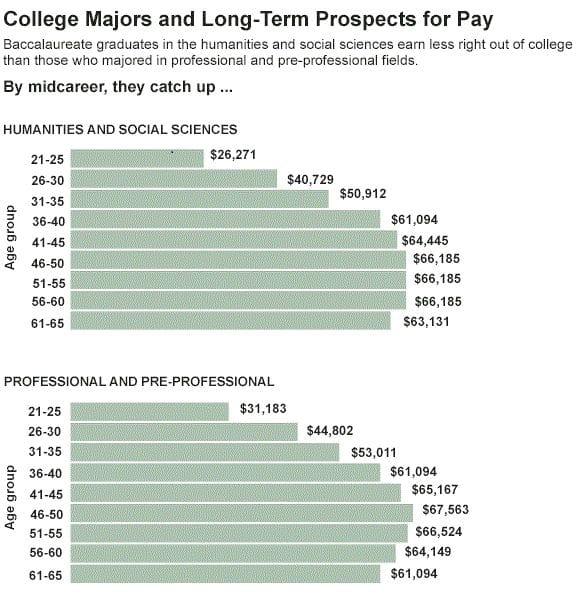Liberal Arts Education: Looking Beyond the First Job

I majored in English. Three times. And for thirteen years I had to fend off the question, “what are you going to do with that?” The truth is, I didn’t really know. It didn’t seem important at the time. I liked reading books and writing about them, and I read the paper every day looking for examples of English majors starving to death. None ever did, so I was pretty sure that I was always going to find a way to eat.
And I did. For most of my adult life, I have been almost unreasonably blessed with the opportunity to spend my time at work getting paid to do the sorts of things that I would do for free if I could: reading, writing, talking about big ideas, designing educational programs, helping people learn. And I am still answering the question—asked by students (and their parents) in the liberal arts institution that I now work for—“what am I going to do with that?”
The answers have not changed much. You are going to interact with the greatest minds in history, read books that will change the way you see everything in the world, and learn how to ask the kinds of questions that will make you, and everybody around you, uncomfortable. You are going to learn the power that ideas have to shake the world. And you are going to have the amazing experience of thinking thoughts that nobody has ever thought before—not even the people who write Wikipedia.
And you are going to get a job. Somebody is going to hire you to do something somewhere. I still read the papers every day, and liberal arts majors still aren’t starving to death, though we hear a lot about how their starting salaries are so much lower than those for technical and professional degrees. And they are. For the first five years of their career, liberal arts majors make much lower salaries than those with majors reputed to be “useful.”
But guess what: liberal arts majors catch up. That is the unambiguous conclusion of a report released this week by the American Association of Colleges and Universities. According to this report, starting salaries for students with professional degrees are often 15-20% higher than salaries for graduates in the humanities and social sciences. But these disparities do not remain, and, by the end of their careers, liberal arts majors are earning just as much—and often quite a bit more—than those who major in professional and pre-professional fields.

This data, I think, gets to the heart of why majoring in a liberal arts field is not nearly as bad an idea as some would have us believe. One’s working life does not consist solely of one’s first job, nor does one’s productive time in the world end at 30. People move around a lot more than that. New industries are born and old ones fade away, and most of the students in college in 2014 will eventually be employed doing something that doesn’t even exist yet.
There are much worse ways to prepare for these careers than reading great books, thinking great thoughts, and having ideas that nobody has ever had before--not even the people who write Wikipedia.


